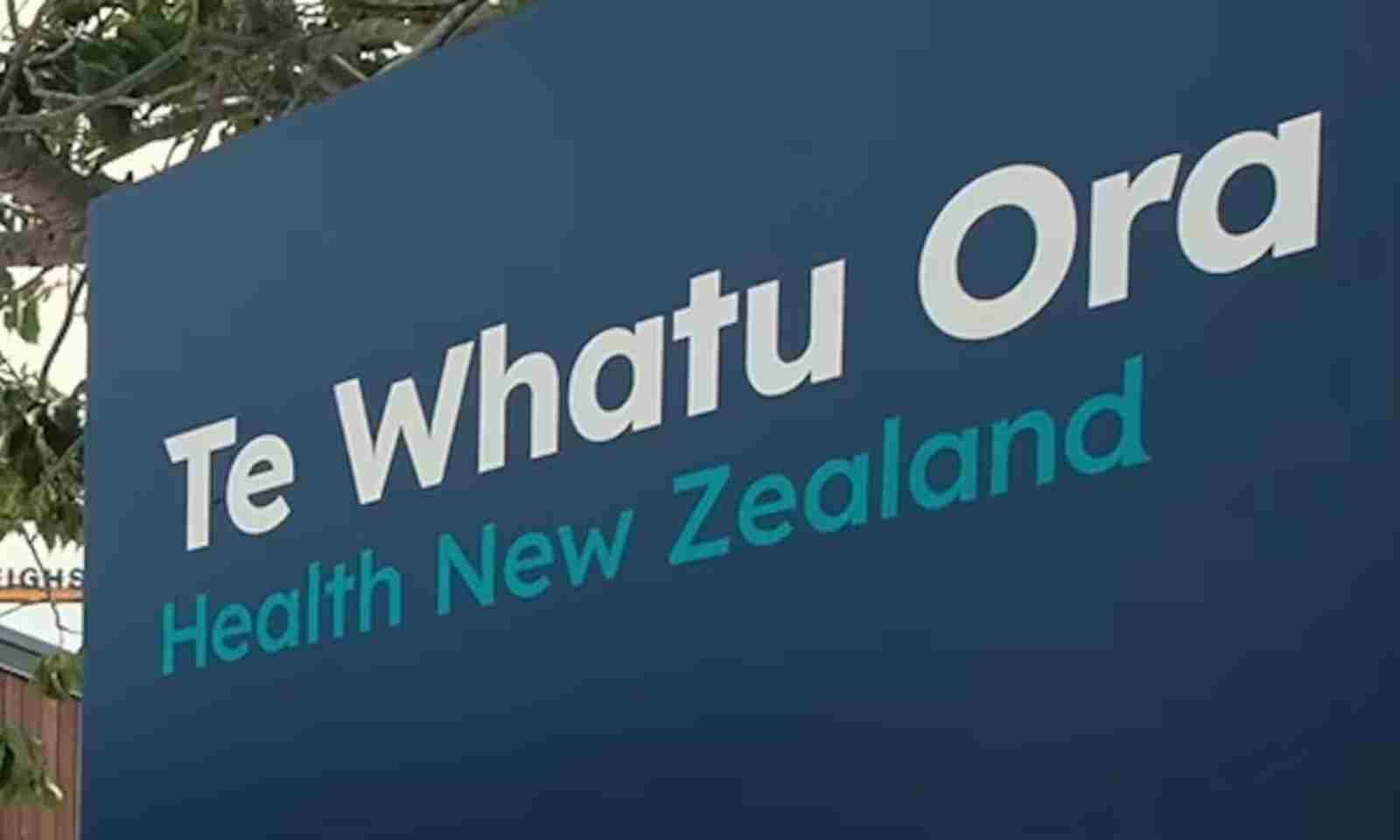

From left, former Te Whatu Ora board chair Rob Campbell, new commissioner Lester Levy, former health minister Dr Ayesha Averrall and Health Minister Dr Shane Reti.
Photo /Supplied.
Health NZ’s cost-cutting crisis: How it impacts Pacific communities
With over 1000 planned job cuts, including Pacific health advisers, workers rally against a system under strain with experts fearing long-term consequences for the public.




Inked across lands: How Pacific tattoo art is thriving in Germany

Pacific pride on the big stage: ‘Chief of War’ wins Best Ensemble at the Spirit Awards



Inked across lands: How Pacific tattoo art is thriving in Germany
Healthcare workers across the motu have rallied against a system under strain, with experts expressing concerns about the long-term consequences for public health.
Rob Campbell, the former chair of Te Whatu Ora, warns that restructuring Pacific health teams will worsen health outcomes for Pacific communities.
He says these changes, aimed at tightening financial belts, have far-reaching implications that demand our attention.
Speaking with William Terite on Pacific Mornings, Campbell said as vital health services faced reductions, the wellbeing of Pacific families hung in the balance.
He said understanding the impact of these decisions was crucial, not just for those directly affected, but for everyone who valued equity and care in the healthcare system.
Thousands of nurses, healthcare assistants, midwives, and other healthcare workers across the country staged an eight-hour strike organised by the New Zealand Nurses Organisation (NZNO) on Tuesday.
Currently, there are 2700 nursing vacancies nationwide and Health NZ plans to cut 1478 more roles, including public health and Pacific health advisers.
Workers warn the cuts will worsen the already severe strain on healthcare services.

Te Whatu Ora NZ. Photo /PMN News.
Campbell, who attended the strikes on Tuesday, says the crisis unfolding needs to be explored - about what it means for the future of healthcare in our communities.
He told Terite that there was “genuine distress” among healthcare professionals.
“I know that the Pacific teams are all being restructured, yet again.
"They've had several goes at them, both in the head office and on the ground and so the wrong people are facing the stress and the difficulty of this.”
He believes that these restructurings are contributing to increased staff stress, which will decrease patient service and worsen health outcomes for Pacific people.
Health NZ recently confirmed that it would extend cost-cutting measures over the next three years, signalling more voluntary redundancies amid a reported deficit of over $700 million.
Chief Executive Margie Apa said that despite significant changes, further efforts were needed to operate within budget.
Watch Rob Campbell’s full interview via 531pi’s FB below.
Financial mismanagement?
Campbell says the financial issues are not the result of overspending on Pacific or Māori health, or vital public health services in working-class districts.
Instead, he attributed them to “bad expenditure, poor budgeting and underspending on major capital projects”.
“There's something like $14 billion worth of deferred maintenance in the health system that should be spent on health facilities.
“That's before you get to the new hospitals and so trying to deal with issues like a few staff here or there is just a ridiculous misestimation of the problem.
“This is not a result of having too many people working at the coalface and yet that's where so much of the pressure is being absorbed.”
In Health NZ’s annual report, it acknowledged that over-recruitment had exceeded their available budget, contributing to its financial challenges.
However, the report stated that they had hired more nurses and staff than in recent years to address critical workforce shortages, leading to personnel costs exceeding the budget by $797 million.

Photo/file
The report also noted "year-on-year increases in funding to Health NZ with a funding uplift of 6.3 per cent in the current 2024/25 year," emphasising the need for efficient resource use to "deliver more health services to our patients, families, and communities”.
Despite these initiatives, workforce feedback revealed ongoing challenges with only 40 per cent of staff feeling that their teams had adequate resources to perform their roles effectively.
Warnings of growing privatisation
Campbell raised his concerns about privatisation in healthcare, saying that nearly half of the population is turning to private healthcare due to inadequacies of the public system.
“So the partial privatisation of our system that we've seen, which I think is going to continue and I think actually is part of this hidden agenda.
“The more you cut services, the more you cut your capability to deal with things in the public sector, the more people will switch over to the private sector.”
Campbell said neither the current Health Minister, Dr Shane Reti, nor the former minister, Ayesha Verrall, should escape accountability for the present crisis.
“I don't think they've manufactured this crisis because I think the crisis is real.

Campbell claims the drive towards private healthcare is on the rise. Photo /Unsplash.
“But I think the way they're reacting to the crisis is to do with how to increase the private provision of health care and diminish the responsibility of the community in this respect.”
Lost identity
Despite advocating for the continued existence of Te Whatu Ora, Campbell expressed concern that some of the most beneficial aspects of the reforms are being lost.
“We haven't done enough - We never did in the initial stages do enough about supporting Pacific health needs or indeed other migrant community needs.
“I think a lot of the things that people think were wrong with the way Te Whatu Ora was set up were actually the best things about it and we're losing them.
“This is something created over many years, and you can't expect the staff to pay the burden for it.”
Response from Te Whatu Ora
Health New Zealand - Te Whatu Ora Chief Executive Margie Apa said they have made good progress towards living within their means but are still spending beyond their budget.
"We are also taking the opportunity in our reset to devolve more functions to regions to strengthen frontline clinical delivery to patients and communities," Apa said.
"We are resetting to strengthen our frontline; provide quality, compassionate, affordable healthcare at the right time and in the right place and, importantly, achieve the National Health and Mental Health Targets.
"We took immediate steps to stabilise our finances, including working to get the best value for the products we purchase, and pausing or adjusting projects that may not provide immediate benefits.
"Over the coming few weeks we expect to release a number of consultation proposals, with more to follow in the new year. Feedback is sought from our staff on how we reset our functions to get back to budget while also taking opportunities to strengthen how we work in regions.
"We have released consultation documents for four business units. These are ‘Data and Digital’, the ‘National Public Health Service’ (NPHS), Hauora Māori Health Service’ and ‘Pacific Health’.
"We know working through these changes will be unsettling for affected staff and acknowledge a large number of positions are proposed to be removed. We are committed to supporting people throughout this process.
"In advance of these formal processes, 564 staff employed under individual employment agreements or covered by specific PSA collective agreements have accepted an offer of voluntary redundancy. Frontline clinical staff were not eligible for this opportunity.
"We will publish monthly updates on our people changes.
"While the consultation processes are underway, we do not intend to make any further comments, outside of our conversations with staff and unions."